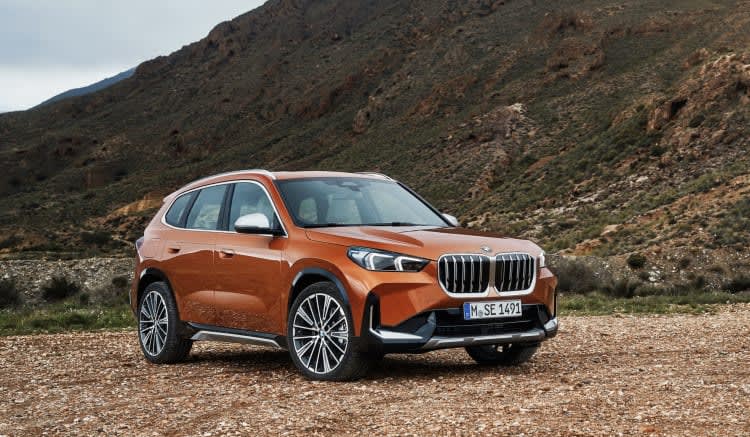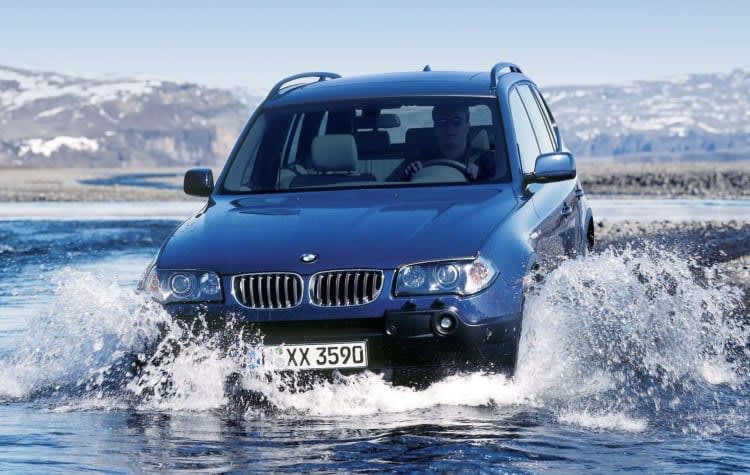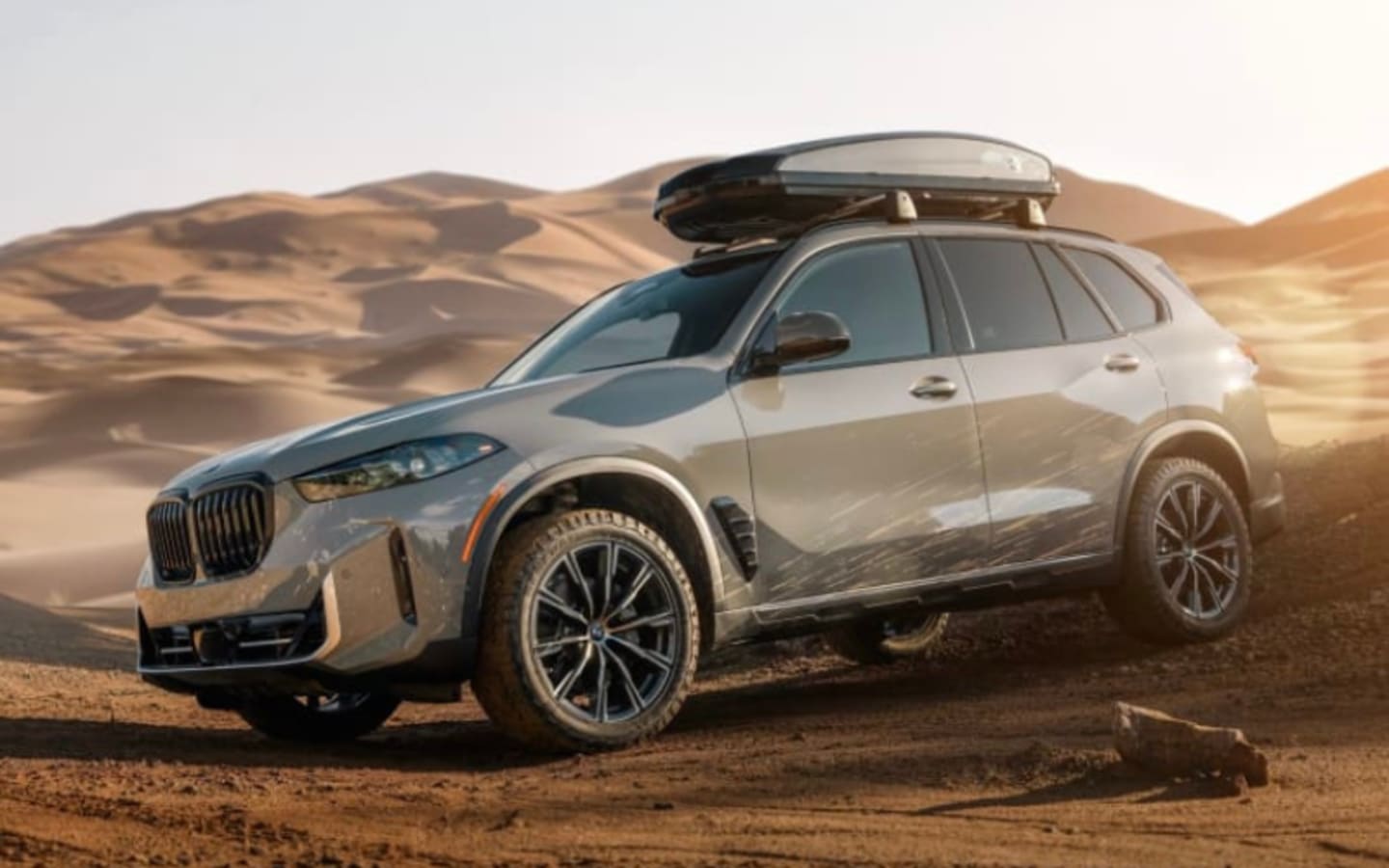BMW has long been celebrated for crafting vehicles that deliver thrills behind the wheel, earning its reputation as the maker of "The Ultimate Driving Machine." Its iconic slogans, from "Sheer Driving Pleasure" to promises of precision handling, have cemented its place in the hearts of driving enthusiasts. However, a new chapter is unfolding for the German automaker, one that swaps smooth asphalt and winding canyon roads for rugged trails and untamed terrain. According to industry insights, BMW is eyeing a bold move into the adventure crossover segment, potentially transforming its SUV lineup—X1, X3, X5, and X7—into off-road-capable machines. This shift could redefine how we view BMW’s SUVs, but can the brand known for sporty luxury truly master the wild? Let’s dive into what this means for BMW’s future and whether it can deliver SUVs that excel both on pavement and off the beaten path.
A New Direction for BMW SUVs
BMW’s current SUV lineup, spanning the compact X1 to the commanding X7, is designed with luxury, technology, and on-road performance in mind. These vehicles are more at home carving corners or cruising highways than tackling muddy trails or rocky paths. Yet, recent reports suggest BMW is considering a rugged overhaul for its SUVs, potentially introducing off-road-focused models or specialized packages to compete in the growing adventure crossover market. This isn’t entirely new territory for BMW, as it has dipped its toes into off-road waters before, most notably with the X5 Silver Anniversary Edition. But the company’s ambitions seem far grander this time, aiming to create a lineup that can rival the off-road prowess of vehicles like the Hyundai Ioniq 5 XRT, Honda Passport TrailSport, and Subaru Forester Wilderness.

Image credit: BMW
The X5 Silver Anniversary Edition offers a glimpse of what BMW might bring to the table. This special model, celebrating 25 years of the X5, comes equipped with an xOffroad Package that includes off-road driving modes tailored for sand, rocks, gravel, and snow. It also features a rear locking differential and a two-axle air suspension, allowing drivers to adjust ride height for better ground clearance. While these additions make the X5 more capable on rough terrain than its standard counterparts, they’re just the starting point. BMW could apply similar enhancements—or go even further—across its X1, X3, and X7 models, creating a family of SUVs ready to venture beyond the pavement.
Learning from Past Mistakes
BMW’s first attempt at a rugged SUV came in the early 2000s with the original X3. Marketed as a smaller, tougher alternative to the X5, it promised off-road capability with its xDrive all-wheel-drive system and variable torque distribution. The reality, however, was less impressive. The first-generation X3 lacked the ground clearance and underbody protection needed for serious off-roading, making it more suited to gravel driveways than challenging trails. Automotive journalist Jeremy Clarkson famously exposed its limitations when he got stuck during an off-road test, highlighting that the X3 was out of its depth in rough conditions. Adding insult to injury, the X3’s stiff ride and underwhelming interior quality didn’t measure up to BMW’s luxury standards, leaving it overshadowed by the more capable E53 X5.
Fast forward to 2025, and BMW has had over two decades to refine its approach. The company’s engineering prowess has evolved significantly, with advancements in all-wheel-drive systems, suspension technology, and vehicle dynamics. If BMW commits to building off-road-capable SUVs, it’s likely to avoid the pitfalls of the past. Expect modern iterations to feature higher ground clearance, robust skid plates, and all-terrain tires, paired with sophisticated electronics to optimize traction on diverse surfaces. These upgrades would make the X1, X3, X5, and X7 more credible contenders in the adventure segment, appealing to drivers who want to explore the great outdoors without sacrificing BMW’s signature style and comfort.
What Could Off-Road BMW SUVs Look Like?
Imagine a BMW X3 rolling off the assembly line with beefy all-terrain tires, a lifted suspension, and rugged cladding that screams adventure-ready. Or picture an X7, BMW’s largest SUV, equipped with a rear locking differential and off-road modes that let it conquer rocky hillsides as easily as it cruises city streets. These vehicles could come as standalone models, like a dedicated “X3 Trailblazer” or “X7 Overland,” or as optional packages that transform existing trims into off-road warriors. The X5 Silver Anniversary Edition’s xOffroad Package provides a blueprint: adjustable air suspension for increased ground clearance, specialized driving modes for different terrains, and hardware tweaks to enhance traction and durability.

Image credit: BMW
BMW could also draw inspiration from competitors. Non-luxury brands like Hyundai, Honda, and Subaru have found success with rugged SUVs by adding practical features like all-terrain tires, skid plates, and tuned suspensions without compromising on-road comfort. For BMW, this could mean outfitting the X1 with a compact, agile setup for light off-roading, while the X5 and X7 could tackle more demanding trails with beefier hardware. The X3, sitting in the middle, could strike a balance, offering enough capability for weekend adventures while retaining its sporty edge for daily driving.
Why Go Off-Road?
The adventure crossover segment is booming, driven by a growing appetite for vehicles that blend everyday usability with outdoor capability. Middle-aged drivers, in particular, are drawn to SUVs that can handle family duties during the week and weekend getaways to campsites, mountains, or remote trails. BMW’s current SUVs excel in urban environments, but they lack the rugged credentials to compete with vehicles like the Jeep Wrangler, Toyota Land Cruiser, or Ford Bronco. By introducing off-road-focused models, BMW could tap into this market, attracting buyers who want a premium SUV that doesn’t shy away from dirt and gravel.
The success of rugged trims from mainstream brands suggests there’s demand for this approach. The Hyundai Ioniq 5 XRT, for example, combines electric efficiency with off-road styling and capability, appealing to eco-conscious adventurers. Similarly, the Honda Passport TrailSport and Subaru Forester Wilderness have won over drivers with their blend of practicality and trail-ready features. BMW, with its reputation for luxury and performance, could elevate this formula by offering SUVs that pair off-road prowess with premium interiors, cutting-edge tech, and the brand’s hallmark driving dynamics.
Challenges and Opportunities
Creating a lineup of off-road-capable SUVs won’t be without challenges. BMW’s brand identity is deeply tied to sporty performance and luxury, and venturing too far into rugged territory risks alienating its core audience. The first X3’s failure to deliver on its off-road promises serves as a cautionary tale: half-hearted efforts won’t cut it. To succeed, BMW must commit to meaningful upgrades—think increased ground clearance, durable underbody protection, and terrain-specific driving modes—while preserving the refinement that defines its vehicles.
On the opportunity side, a well-executed off-road lineup could broaden BMW’s appeal. The X5 Silver Anniversary Edition shows the brand is willing to experiment, and its xOffroad Package proves that off-road capability can coexist with luxury. By extending these features to the X1, X3, and X7, BMW could capture a new segment of buyers who want a vehicle that’s as comfortable on a mountain trail as it is on a highway. Additionally, the company’s expertise in all-wheel-drive systems, like xDrive, gives it a strong foundation to build upon. With proper tuning, xDrive could rival the off-road traction systems found in competitors like the Jeep Grand Cherokee or Land Rover Defender.
The Road Ahead
BMW’s potential pivot to off-road SUVs is more than just a response to market trends—it’s a chance to redefine what a luxury SUV can be. The X5 Silver Anniversary Edition’s xOffroad Package, with its adjustable suspension and terrain-specific modes, hints at what’s possible. If BMW applies this approach across its lineup, it could create SUVs that are as capable in the wilderness as they are in the city. The X1 could become a nimble trailblazer for urban adventurers, the X3 a versatile all-rounder, the X5 a powerful overlander, and the X7 a luxurious expedition vehicle.
To make this vision a reality, BMW must learn from the original X3’s missteps. The first-generation model tried to be rugged but fell short due to limited ground clearance and inadequate protection. Today’s BMW has the technology and expertise to do better, with advanced all-wheel-drive systems, adaptive suspensions, and robust engineering at its disposal. By combining these with rugged styling and practical off-road features, BMW could create SUVs that stand out in a crowded market.
A Glimpse of the Future
While BMW hasn’t confirmed specific plans, the idea of off-road-focused X1, X3, X5, and X7 models is tantalizing. These vehicles could appeal to drivers who crave adventure without sacrificing the premium experience BMW is known for. Picture an X5 navigating a rocky trail with ease, its air suspension raised to clear obstacles, or an X3 powering through a muddy path, its xDrive system distributing torque to maintain grip. These SUVs would retain BMW’s signature style—sleek lines, premium interiors, and cutting-edge tech—while adding the capability to go places other luxury SUVs can’t.
The adventure crossover segment is ripe for disruption, and BMW is well-positioned to make a mark. By building on the lessons of the past and leveraging its engineering expertise, the brand could deliver SUVs that redefine what it means to drive a BMW. Whether it’s a standalone off-road model or a rugged package for existing SUVs, this move could bring "Sheer Driving Pleasure" to new terrains, proving that BMW’s ultimate driving machines are just as capable off the road as they are on it.





